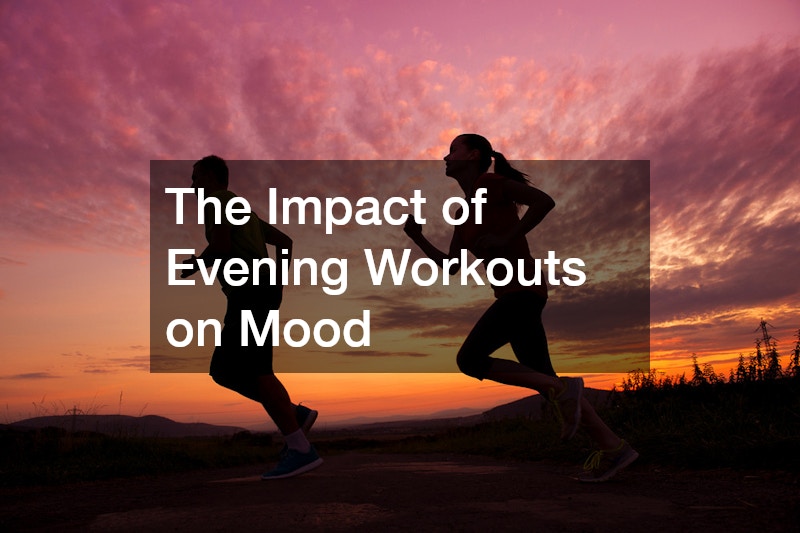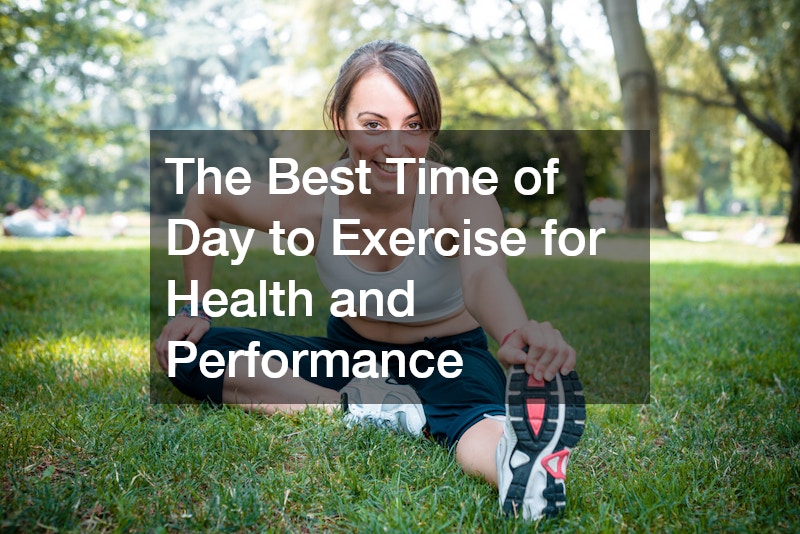
When it comes to exercise, timing can play a significant role in how our bodies respond. Many people wonder if there is an ideal time of day to work out in order to maximize health benefits and physical performance. The answer, however, is not as simple as a one-size-fits-all approach. While any time of day can be suitable for exercise, research shows that the time at which you exercise can affect various aspects of your metabolism, strength, endurance, and overall fitness progress.
The Influence of Exercise Timing on Metabolism
Studies have shown that the timing of exercise can influence how our bodies metabolize different types of fuel, such as sugars, fats, and proteins. These fuels are critical for energy during workouts, and their breakdown can vary depending on the time of day.
For example, exercising in the morning may lead to greater breakdown of these fuels in multiple organs, including muscle tissues, fat cells, and the liver. This means that morning workouts could potentially offer a higher metabolic response compared to evening workouts.
On the other hand, when exercise is performed during a person’s rest period, such as in the late evening or night, the body shows a reduced breakdown of these fuels. This suggests that the body may be more primed for fat burning and energy utilization earlier in the day, but the effects are less pronounced later on. This highlights the complexity of exercise timing and suggests that different times may have specific metabolic advantages.
Gender Differences in Exercise Response
It’s important to note that men and women may respond differently to exercise depending on the time of day. Research has found that women tend to experience greater reductions in body fat, especially in the abdominal region, when they exercise in the morning. This is significant because abdominal fat is closely linked to an increased risk of cardiovascular and metabolic diseases. In contrast, women who exercised in the evening saw improvements in upper body strength and muscle endurance.
For men, exercise timing appeared to have less impact on general improvements in fitness, though there were a few notable exceptions. Men who exercised in the evening showed more significant reductions in blood pressure, while those who worked out in the afternoon had better blood glucose regulation. This suggests that while the effects of exercise timing might be more pronounced for women, men can still benefit from timing their workouts based on specific health goals.
Performance and Strength: Afternoon and Evening Benefits
There is evidence suggesting that physical performance—particularly strength—may be better in the afternoon or evening. This is because our bodies naturally experience higher levels of strength and power later in the day. Many world records, for example, have been broken during afternoon or evening competitions, indicating that peak performance may be tied to the body’s circadian rhythms. For those looking to maximize their physical power, it might be beneficial to schedule workouts during these times.
Even though early morning workouts are often considered the most convenient for many, particularly those who go to fitness gyms before work or school, the body might not be at its strongest during this time. Morning exercise might not offer the same immediate power output as later in the day, which is something to consider for individuals with performance-oriented fitness goals.
The Impact of Evening Workouts on Mood
One of the surprising findings from research into exercise timing is that people who worked out in the evening often reported a significant improvement in their overall mood. Contrary to previous assumptions that evening workouts might cause disruptions to sleep, these individuals generally felt more relaxed and mentally clear. This indicates that, for some people, the evening could be a great time to de-stress, unwind, and boost mental well-being through exercise.
For those who struggle with stress throughout the day, evening workouts might offer a beneficial outlet for releasing tension. Additionally, this is often a more realistic time for many individuals who work full-time or have family commitments, making it an ideal time for fitness enthusiasts to get to fitness gyms or engage in home workouts.
Consistency and Personal Preference
While timing can play a role in maximizing certain fitness benefits, the most important factor in any fitness routine is consistency. Choosing the best time of day to exercise should be based on when you can commit to working out regularly. Research consistently shows that the key to long-term success in any fitness journey is finding a routine that fits your schedule and aligns with your personal preferences.
For some people, this means becoming a morning exerciser, heading to the fitness gym first thing to get the day started with a burst of energy. For others, evening workouts might be the most practical and enjoyable option. It’s essential to choose a time that works for your lifestyle and one that you will stick to over the long term. Whether it’s early in the morning or late in the evening, consistency in your exercise routine will lead to greater overall health and performance improvements.
Multi-modal Exercise for Comprehensive Benefits
While the time of day you choose to exercise matters, it’s also important to recognize that different types of exercise can have varying benefits. A balanced routine that incorporates strength training, high-intensity interval training (HIIT), endurance exercises, and stretching will provide a more comprehensive fitness regimen. Many fitness gyms now offer classes that combine these different modalities to ensure individuals get a full-body workout.
Engaging in a variety of exercise types, rather than focusing on one specific activity, is crucial for optimizing overall fitness. It not only challenges different muscle groups but also enhances cardiovascular health, flexibility, and mental well-being. When you incorporate these multiple forms of exercise into your routine, your body benefits more holistically, regardless of the time of day.
Conclusion
Ultimately, the best time of day to exercise depends on individual preferences, lifestyle, and fitness goals. While there are specific benefits to exercising at certain times—such as better metabolic responses in the morning or enhanced strength in the afternoon or evening—the most important factor is consistency. Whether you prefer early morning workouts to start the day with energy or find evening exercise more practical for relaxation and stress relief, what matters most is finding a time that fits into your routine. Regardless of when you choose to work out, incorporating a variety of exercises and staying committed to your fitness goals will lead to lasting improvements in both health and performance.
.



